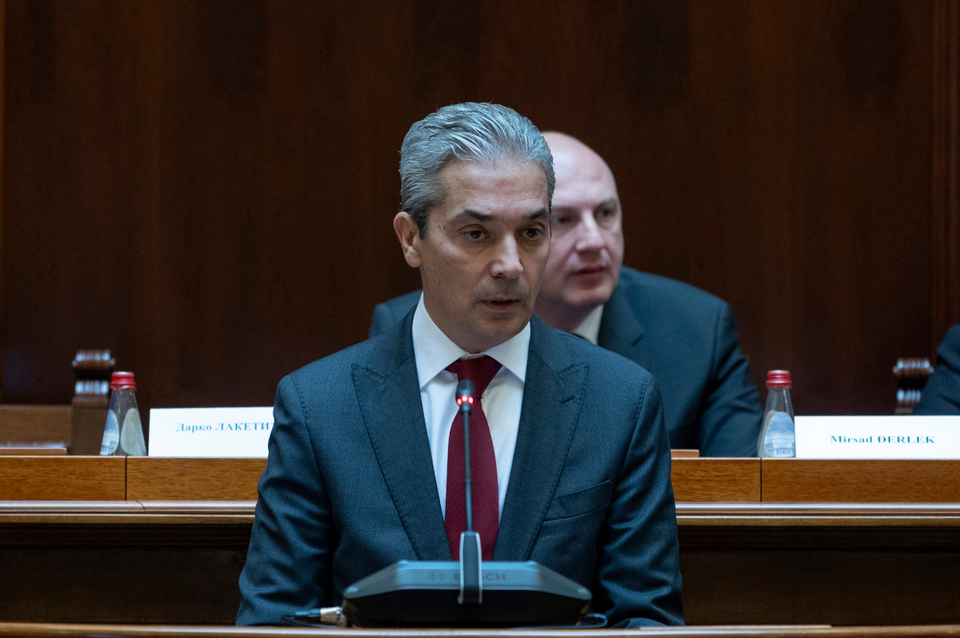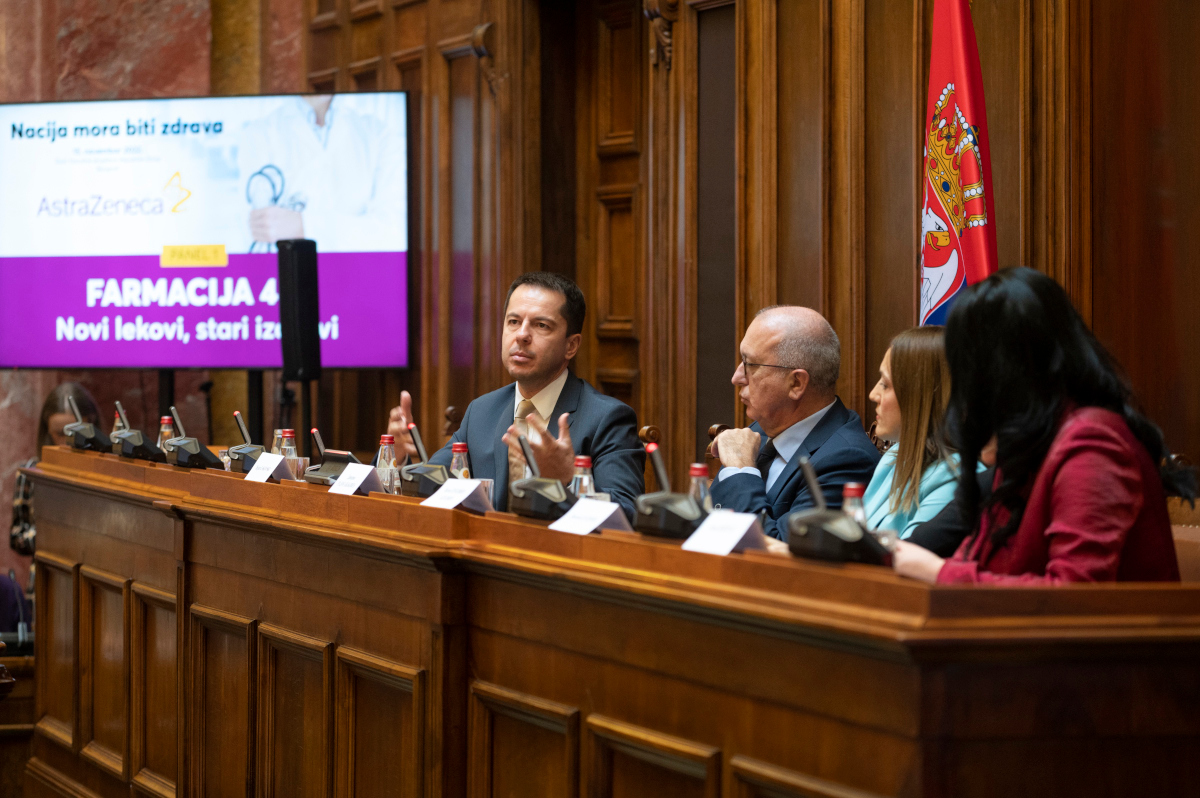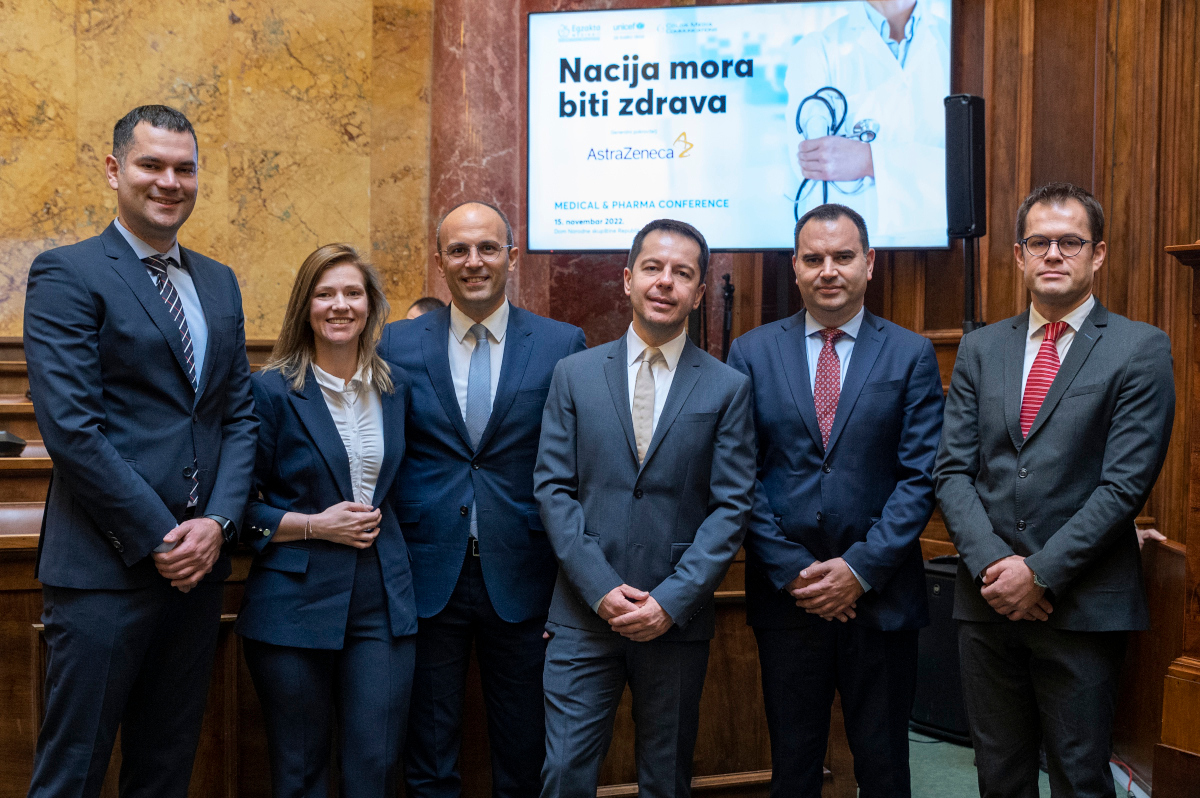‘Medical & Pharma Conference: The Nation Must be Healthy’ was held in the packed hall of the Republic of Serbia’s National Assembly. The conference gathered a large number of medical and pharma experts and attracted a lot of attention from the interested public.

Today, all the countries are focusing on their healthcare systems, how to improve them and how to provide people with the latest medication and treatments needed for a long and healthy life. This has been in focus for years in Serbia too, especially since the onset of the COVID-19 pandemic. That’s why we gathered the biggest experts in medicine and pharmacology in one place to obtain information on what needs to be done to make our nation healthy.
Dr. Darko Laketić, chief medical doctor, associate professor, and Chairman of the Serbian National Assembly’s Health and Family Committee, Dr. Mirsad Djerlek, State Secretary at the Health Ministry, and H.E. Hami Aksoy, the Turkish Ambassador to Serbia, officially opened the conference.
Dr. Darko Laketić, Chairman of the Serbian National Assembly’s Health and Family Committee, pointed out that he is very happy when health topics are discussed in the Parliament because we discuss them both as MPs and ordinary people.
“Timely reform of the health system and health policies is something we must do, and this conference and many other gatherings are a way to seek solutions to all pressing issues actively. Let’s look for solutions for potential new problems that may affect the health system in the future”, said Dr. Laketić.
“Serbia has enough power to be among the top six countries in Europe when it comes to the health system,” Dr Mirsad Djerlek from the Ministry of Health noted
Dr. Mirsad Djerlek, State Secretary at the Ministry of Health, officially opened the conference by saying that it is always useful for the Ministry of Health to hear the conclusions of such events because it helps them determine plans and create health policies.
According to him, the coronavirus has changed healthcare, and now we need to start reforming primary healthcare and raising people’s awareness to take more care of their health and respond to screening campaigns.
“Serbia has enough power to be among the top six countries in Europe when it comes to the health system,” Dr. Djerlek noted.

H.E. Hami Aksoy, the Turkish ambassador to Serbia, said that health care is one more segment in which his country has close cooperation with Serbia.
Acıbadem Bel Medic, the first private hospital, is one of the most significant Turkish investments in Serbia. They are planning to expand their investment in Serbia shortly by opening a brand new hospital with state-of-the-art equipment.
“As a result of the transformation in healthcare, medical tourism has greatly developed over the years. We gathered momentum before the pandemic because, in the first three quarters of 2022, the number of people who preferred to go to Turkey for medical treatment reached over 870,000”, Ambassador Aksoy said.
Dr. Dragana Vujičić, Assistant Minister, Sector for Medication and Medical Devices, Psychoactive Controlled Substances and Precursors, Ministry of Health, Vesna Vuković Kojović, Deputy Director of the Medication and Pharmacoeconomics Sector at the State Health Insurance Institute (RFZO), Davorin Radosavljević, head of the Medical Oncology Clinic of the Institute of Oncology and Radiology of Serbia and Dejan Lakovski, director of the Astra Zeneca Balkan Cluster, all took part in the first panel discussion called ‘Pharmacy 4.0: New Drugs, Old Challenges’.

Dr. Vujičić pointed out that prevention is key to improving the health system.
Investing in prevention paid off many times over, Ms. Vuković Kojović added.
Dr. Radosavljević noted that the importance of early detection is immeasurable when it comes to oncology.
When asked about the future of medicine and pharmacology, Mr. Lakovski replied that we will yet see how important digitization is in the health system.
“We are developing programs that patients will use in the form of sensors or implants that will help patients to quickly identify acute pain and thus prompt them to see a doctor,” Dejan Lakovski from Astra Zeneca said
“We are developing programs that patients will use in the form of sensors or implants that will help them quickly identify acute pain and thus prompt them to see a doctor. Another example is sensors in the heart region that give a timely signal that something asymptomatic is happening. The next example is that we will be able to use algorithms to predict when a patient with a rare or chronic disease will appear so that we can have appropriate medication on standby. All this facilitates the development of artificial intelligence, science in medicine, and biotechnology”, said Mr. Lakovski.
Dr. Snežana Pantić Aksentijević, Chairwoman of the Public Health Group at the Healthy Ministry, Dr. Kristina Davidović, radiology specialist from REA Medika, Dr. Gordana Pantelić, ophthalmologist, founder and owner of Exakta Medika Group, Dr. Veselin Bojat, chief medical doctor, associate professor, orthopedic surgeon, and director of the Novi Sad Community Health Centre, and Professor Ana Banko, MD and subspecialist in virology from Institute of Microbiology and Immunology all, took part in the second panel discussion titled Post-Pandemic Healthcare System.

The panelists agreed that the population’s immunization, either those who received the vaccine or those who had COVID-19, still had positive effects, especially since there is no need to wear facial masks anymore.
Whether in the pandemic or not, we have to think about the nation’s public health, Dr. Pantić Aksentijević said.
A healthy worker in a healthy environment is the goal that all of us working in the healthcare system have and something toward which we must strive and work together, said Dr. Pantelić.
The effects of the COVID-19 pandemic have undone years of progress, including the one made in honoring children’s rights. The war in Europe is creating a cost-of-living and humanitarian crisis for many of the world’s poorest people. Also, taking into account climate change, the times we live in are extremely challenging for children and families.
Dr. Dragoslav Popović, an international consultant for vaccines and immunization, president of the Association for Public Health of Serbia, Dr. Ljiljana Stanković, national coordinator of the Breastfeeding, Family and Newborn Care Programme, Dr. Jelena Zajeganović Jakovljević, head of the Children Health and Early Development Programme at UNICEF Serbia, Dr. Marija Mitković Vončina, clinical assistant and psychiatrist at the Institute of Mental Health, and Dr. Snežana Pantić Aksentijević, head of the Public Health Group at the Ministry of Health, participated in the third and last panel called “Children and Family Health in Focus.”
Serbia does not have precise data on how many children under the age of 6 have developmental disabilities, but based on the annual number of newborns and international trends, around 12,000 children and their families are expected to be the subject of early intervention services every year. This means that 60,000 children every year will need this service.
The importance of conferences of this type is immeasurable because the public must be informed about the health policies that the state is focusing on, as well as the innovations that the development of medicine and pharmacology brings to our part of the world.
Astra Zeneca, Egzakta Medika, and UNICEF Serbia supported the conference.
